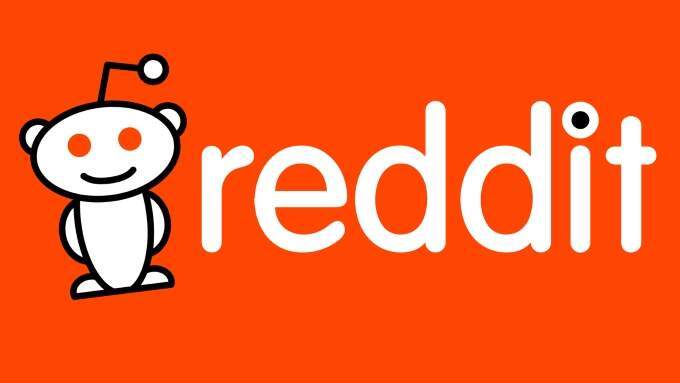Starting your own podcast can be lots of fun. And if that’s all you’re interested in, then by all means, record and release whatever you like!
But if you’re serious about building an audience, you need to put your listeners interests above your own. You need to think carefully about who they are, what they’re interested in, and the kinds of things likely to resonate with them. That’s why it’s often helpful to explicitly define your ideal podcast listener.
Always keep your listeners at the forefront of your mind.
Having a clear idea of who your ideal podcast listener is can act as a useful guide, helping you plan and produce better audio. So in this article we’ll explain how to define your ideal listener persona and how to use it to find new audiences and record better content.
Why Defining Your Ideal Podcast Listener Matters
Failing to think about and cater to a specific type of listener is one of the main reasons podcasts fail.
It’s easy to get carried away making your podcast without thinking about who it’s actually for. It’s one of the most common mistakes new podcasters make. If you don’t know who your podcast is for, don’t expect listeners to magically work it out for themselves.
Remember, listeners have zero interest in you personally. They don’t want to hear you ramble about whatever happens to come into your head when you get behind the mic. They want you to add value to their lives. And to do that, you need to have a deep understanding of the things that matter to them.

If you know exactly who you’re aiming your content for, making it focused and relevant will come naturally. Whether you’re aiming to entertain or educate, you can plan content to appeal perfectly to your listeners. That means avoiding all the wasted effort put into making episodes listeners aren’t really interested in.
How to Define Your Ideal Listener
You want to create a whole, fully formed person in your head to act as your ideal podcast listener. Don’t be afraid to get specific. The more details you can give, the more real they’ll feel and the easier it will be to figure out what content they like.
The more specific you can be, the better.
Here’s some of the details and traits you can think about for your ideal listener (but feel free to get as creative as you want with more details!)
- Age
- Occupation
- Location
- Gender
- Education
- Family situation
- Relationship status
- Hobbies
- Likes and dislikes
- Passions
- Problems
There’s no need to worry about getting this perfect first time. Your concept of your ideal listener is likely to grow and evolve over time alongside your show. So you can always go back and make revisions later. The important thing is having a solid persona outline to act as your foundation.
Using Your Ideal Listener Profile to Find New Audiences
Now you’ve got a good idea of who your fictional ideal podcast listener is, it’s time to track them down in the real world (in a non-stalker way, of course). The method is simple. Pick out relevant aspects of your idealised persona (e.g. interested in retro video games), and use them to find communities of real life people.
You can do this in-person through conferences, meetups, and other similar events. But it’s much easier to do online. The internet has made it possible for communities of like-minded people to come together from all over the world. So you can guarantee there’s a Facebook group and a Subreddit for pretty much any topic you can think of. All you need to do is find the ones your ideal listeners are likely to be a part of.

Given your ideal listener persona, join any relevant online communities you can find and see what the members are talking about. Make note of any recurring topics that come up and make an effort to get involved in the conversations yourself. When appropriate, you can bring up your podcast and point others towards it.
A word of warning - don’t spam communities with endless self-promotional posts about your podcast. Not only is it a bad look, it’s also one of the fastest ways to get yourself banned. Most online communities have guidelines, so be sure to read them and avoid breaking the rules. You need to actually add value to the community first if you want to advertise your podcast there.
Tailoring Content to Your Ideal Listeners
Now you’ve found the people who make up your ideal audience, the rest of your podcasting journey will be a lot easier.
Browse the archives of relevant online communities to see what gets people talking.
Having a specific listener in mind will help when you’re planning your episode content. As mentioned above, you can browse the archives of relevant online communities to see what people are talking about. Which topics sparked the most discussion? Which posts were liked / upvoted the most? What problems crop up again and again?
Knowing these details allows you to create episodes that are far more likely to succeed in resonating with listeners. It eliminates guesswork and gives your content-strategy a more data-driven foundation.

Beyond the content itself, it’s also important to consider aspects such as episode format and length. If your ideal listener is a single parent, a two-hour podcast probably isn’t the best way to go. But if you’re aiming to reach young travellers spending lots of time on buses and trains, maybe two hours is the perfect length to help them pass the time. It’s all down to who you want to listen.
You should also make sure all your promotional activity is suited to your audience too. From which social media platforms you use, to the tone of blog posts or show notes you write, knowing who you’re aiming this stuff at is invaluable.
Ask People What They Want to Hear
If you’re getting involved in online communities, you can always ask them for inspiration. Ask for feedback on your podcast topic ideas, or ask what kinds of things they might be interested in hearing about.
Avoid self-promotion. Ask questions instead.
Questions like these are far better than promoting your podcast directly. Most communities will be open and responsive if you’re genuinely curious and looking for advice. And since the question itself implies the existence of your podcast, anyone who is interested can go check it out for themselves.
Go Find Your Ideal Listeners!
There you have it, all you need to know to make a podcast for someone other than yourself. Don’t worry too much if you’re still not 100% sure exactly who is listening. You can always adapt your ideal listener as you learn more about what kind of content performs best for you.
As long as you’re at least thinking about who your listeners are, you're on the right track. Good luck!
For our full, comprehensive guide on how to start a podcast, click here.









